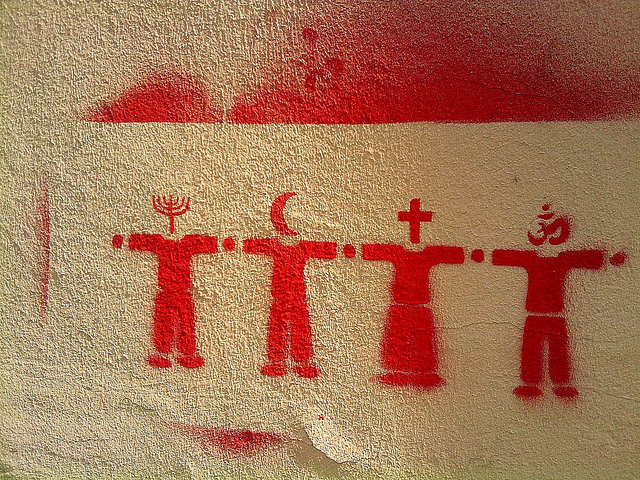When I was a young boy, I asked my dad how we knew our religion—or church—was the true one.
It’s probably a question nearly every child asks a parent. For some reason I don’t really remember his answer. It might have been something like—we follow what the Bible teaches.
Today, that question seems antiquated to me, if not outright meaningless.
In my life, I have been religious and a reprobate—born again, lost again, a minister, a mystic and whatever else.
Looking back on all that now—my religion, whatever it was or is, ranks low on the list of what is important to me.
Albert Einstein said: “True religion is real living—living with all one’s soul, with all one’s goodness and righteousness.”
This is why I like Einstein’s definition—he doesn’t fall into the trap of comparing religions or choosing just one. Instead, it’s all about the individual—“living with all one’s soul.” In fact, he ignores questions of deities and doctrines altogether, implying they are completely beside the point.
However, I don’t believe he is dismissing organized or traditional religion. Einstein didn’t say people should quit their yoga practice, synagogue, church, temple or drum circle. He simply emphasizes personal “goodness and righteousness” as the true standard.
Like Einstein, the Dalai Lama says: “This is my simple religion: There is no need for temples; no need for complicated philosophy. Our own brain, our own heart is our temple; the philosophy is kindness.”
President Franklin Roosevelt similarly stated that unselfishness is the only real religion.
Abraham Lincoln said: “When I do good, I feel good. When I do bad, I feel bad. That’s my religion.”
The English poet John Keats proclaimed: “Love is my religion. I could die for it.”
Jesus explained that his teachings could be summed up in one word—love, which he called the greatest commandment. He condemned the religious leaders of his generation for their pretentious piety and unwillingness to serve their fellow man, calling them poisonous snakes and sons of hell.
Now, if we re-read Einstein’s definition of true religion, it is fair to say that it too can be summed up as love. Isn’t that what “goodness and righteousness” is about?
For those of us who attempt to live above the religious fray—who say “I am spiritual, not religious”—we can talk all we want about mindfulness, meditation, a vegetarian diet, soul retrievals or whatever really. But, if we are motivated by ego, instead of love, no one will be impressed.
As the old bromide goes: “People don’t care how much you know until they know how much you care.”
George Bernard Shaw was once asked what he thought about Christianity.“It might work if they tried it,” he quipped. Of course, Shaw’s comeback applies equally to every religion or value system—each has its faithful and its pretenders.
True religion, however, allows no pretenders. By definition, it is “living with all one’s soul.”
I stated at the outset, that my religion—whatever it is—ranks low on the list of what’s important to me. As I approach the age of 60, all that matters anymore is expanding my heart to love those around me as best I can.
So, whatever one’s spiritual practice or religion may be—I believe it is true, when practiced with love.
.
Relephant:
The Laughing Jesus & Unlearning Religion.
.
Author: Tim Hulst
Editor: Yoli Ramazzina
Photo: Flickr/Matthew Fearnley

 Share on bsky
Share on bsky







Read 0 comments and reply